
#WritersLife: When Writers Dream of Characters in Their Novel
#WritersLife was the first thought I had when I woke. But I couldn't shake the deep depression taking control of me. I felt an immense sadness. It felt like I was so inadequate that I didn't matter to anyone. My life was so pointless and meaningless that no one would ever want to connect with me enough to care about my life. My mind kept circling around about how shitty a human being I was and how it didn't matter what I thought or felt. My chest was heavy, shoulders sunken, and I could feel the length of my jaw pulling downward. I had little energy. Just enough to zombie through the last two days.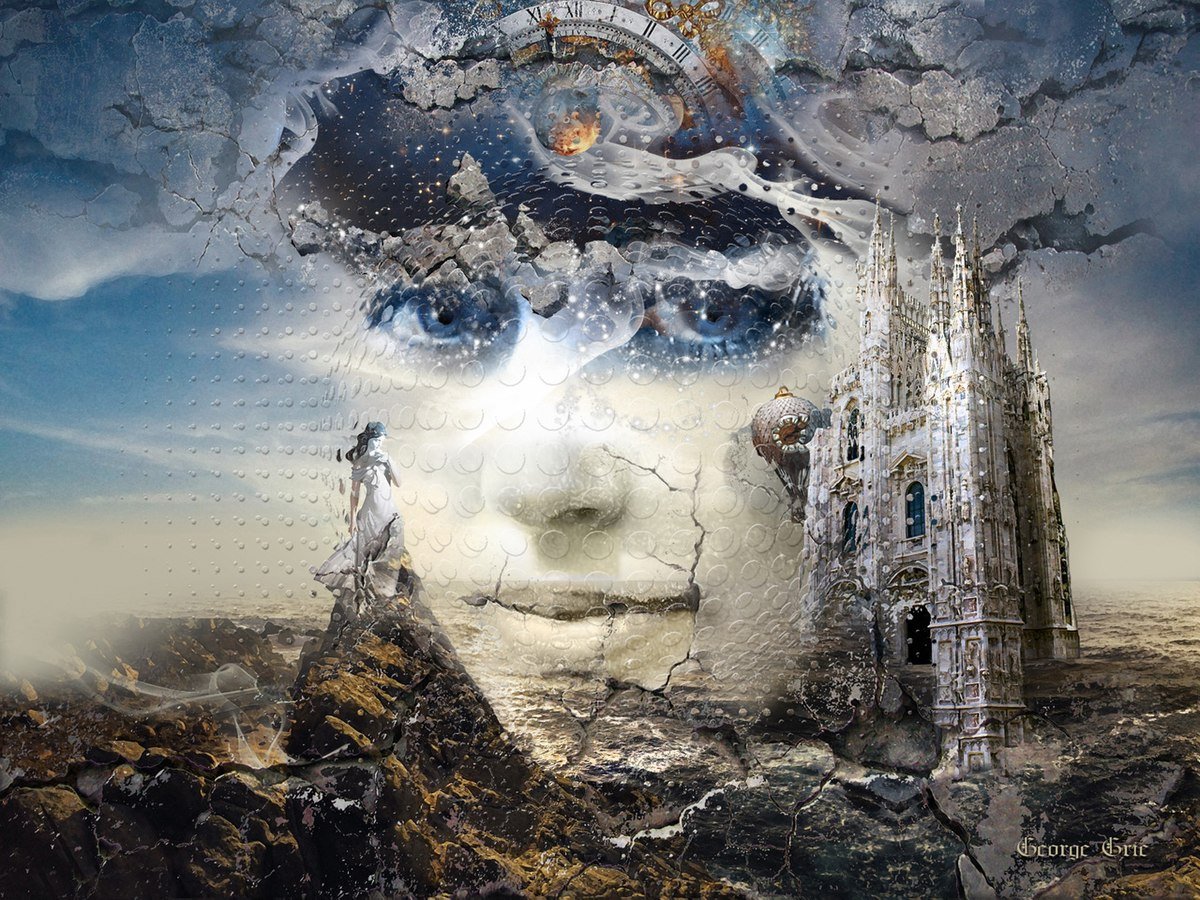 And it started with a vivid dream about a character, Jimena, in my novel, Unsettled Between.I've never had a reaction like this before. I've dreamt about characters and scenes and concepts for novels or short stories before (often in the waking moment between sleep and full consciousness), but I've never had such an emotional reaction. It's really odd and I'm still feeling remnants of it now. Yesterday was the worst of it.I'm not an emotional person. I get sad, but I don't tend to linger in it to a point I would call depression. I've been depressed before, but I tend to force myself into tasks that help alleviate those feelings. So when this feeling grabbed me over the last two days it was very alien, like someone else had stepped inside my body and had taken over.
And it started with a vivid dream about a character, Jimena, in my novel, Unsettled Between.I've never had a reaction like this before. I've dreamt about characters and scenes and concepts for novels or short stories before (often in the waking moment between sleep and full consciousness), but I've never had such an emotional reaction. It's really odd and I'm still feeling remnants of it now. Yesterday was the worst of it.I'm not an emotional person. I get sad, but I don't tend to linger in it to a point I would call depression. I've been depressed before, but I tend to force myself into tasks that help alleviate those feelings. So when this feeling grabbed me over the last two days it was very alien, like someone else had stepped inside my body and had taken over.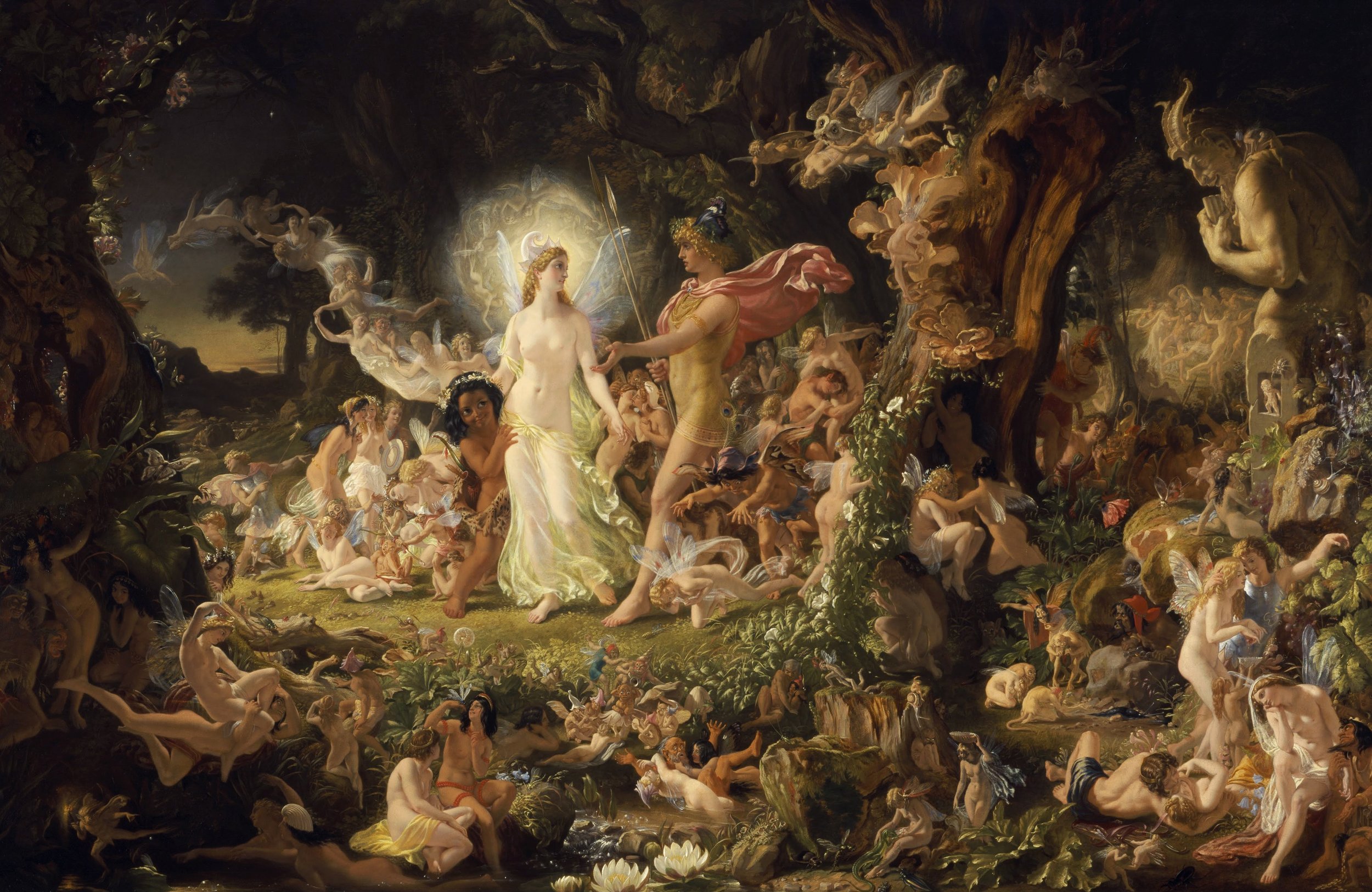 The dream was about me interacting with a character, Jimena. She's not a major character in my novel but she's important to certain stories in the collection.In the dream, Jimena lead me from one place to another but it was almost like I was floating around her as opposed to her leading me. It was like I took on her energy so she could act "normal" or front like she was okay. I watched as she displayed happiness and confidence to people around her, but I carried her sadness. That's weird, isn't it? How could I carry sadness for her?Another odd occurrence happened when I woke. There was a lightening flash that lit up my bedroom. It was so bright I thought it was storming outside. We had rain the day before so I thought maybe storms had come in overnight. But when I looked outside it was overcast but no storms. The flash was like a strobe coming from inside my room--not outside.Now I've carried this unbearable sadness with me for two days. The depression is so harsh that I haven't gotten on social media in the last two days. I'm a junkie or have bouts of social media binges so going two days with no interest in social media is odd. This is likely the case for many of us.
The dream was about me interacting with a character, Jimena. She's not a major character in my novel but she's important to certain stories in the collection.In the dream, Jimena lead me from one place to another but it was almost like I was floating around her as opposed to her leading me. It was like I took on her energy so she could act "normal" or front like she was okay. I watched as she displayed happiness and confidence to people around her, but I carried her sadness. That's weird, isn't it? How could I carry sadness for her?Another odd occurrence happened when I woke. There was a lightening flash that lit up my bedroom. It was so bright I thought it was storming outside. We had rain the day before so I thought maybe storms had come in overnight. But when I looked outside it was overcast but no storms. The flash was like a strobe coming from inside my room--not outside.Now I've carried this unbearable sadness with me for two days. The depression is so harsh that I haven't gotten on social media in the last two days. I'm a junkie or have bouts of social media binges so going two days with no interest in social media is odd. This is likely the case for many of us.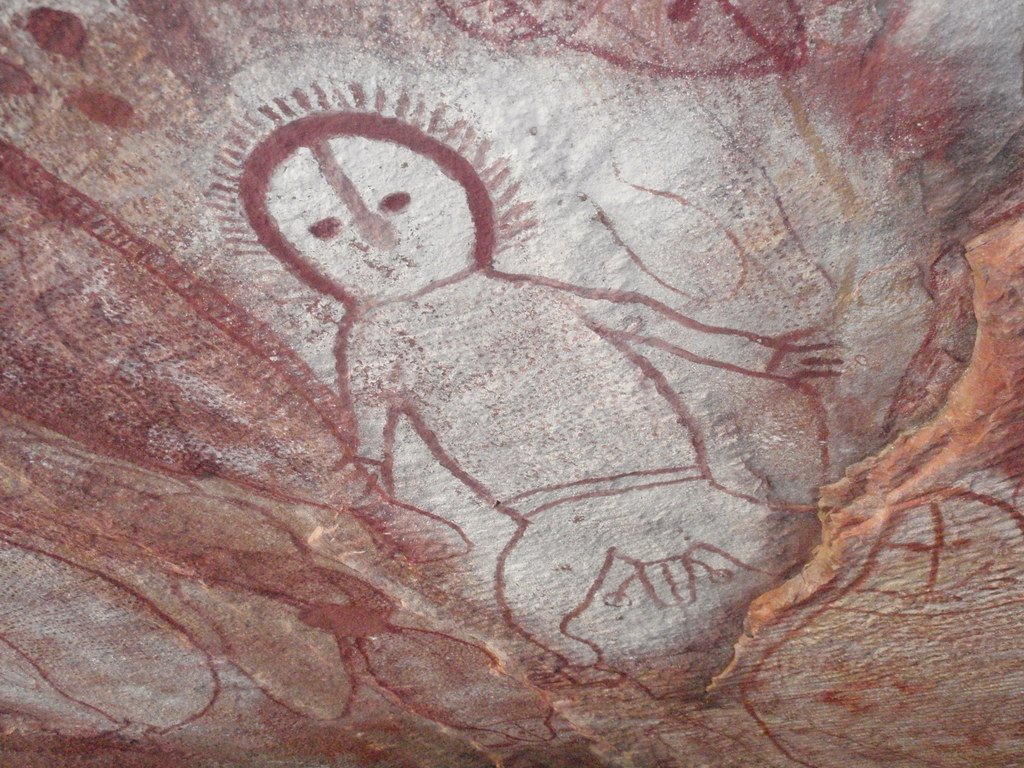 Initially, I tried to work this out as some residual part of my past, like something Jungian I hadn't addressed. But then suddenly I realized the character goes through something in the novel that was emotionally challenging for her. But I didn't give it the emotional weight. Meaning, maybe I wasn't honest enough about how much she hurt. I wish I could tell you what specifically I'm talking about in the novel, but I'm going to have to wait until it's released before I can put the two together.Ultimately, I feel like I didn't do her character justice and she came to me in my dream to show me how she felt. That sounds odd, I know. But I can't make sense of why I'd have these emotions associated to that dream about this specific character. It's the only conclusion I can draw.In fact, I had to write my agent, who received my most recent draft a couple weeks ago. I told her about the dream, and she gave me the green light to go back into the novel and revise Jimena's portion. I do feel better now that I can revise to Jimena's liking. But what an interesting emotional ride. As a writer, I sometimes feel like I know how to pull details from my psyche to write about. But this is a first.Have you dreamed about a character in one of your story lines? If so, what was your experience? A part of me is desperately searching for kindred spirits. I hope I'm not alone in this. I'm hoping this is one of those #WritersLife hashtag moments.
Initially, I tried to work this out as some residual part of my past, like something Jungian I hadn't addressed. But then suddenly I realized the character goes through something in the novel that was emotionally challenging for her. But I didn't give it the emotional weight. Meaning, maybe I wasn't honest enough about how much she hurt. I wish I could tell you what specifically I'm talking about in the novel, but I'm going to have to wait until it's released before I can put the two together.Ultimately, I feel like I didn't do her character justice and she came to me in my dream to show me how she felt. That sounds odd, I know. But I can't make sense of why I'd have these emotions associated to that dream about this specific character. It's the only conclusion I can draw.In fact, I had to write my agent, who received my most recent draft a couple weeks ago. I told her about the dream, and she gave me the green light to go back into the novel and revise Jimena's portion. I do feel better now that I can revise to Jimena's liking. But what an interesting emotional ride. As a writer, I sometimes feel like I know how to pull details from my psyche to write about. But this is a first.Have you dreamed about a character in one of your story lines? If so, what was your experience? A part of me is desperately searching for kindred spirits. I hope I'm not alone in this. I'm hoping this is one of those #WritersLife hashtag moments.
Support a Native owned Etsy shop, Allies United, where I offer unique merch for allies of social justice movements, like MMIW, Native Lives Matter and Black Lives Matter. Take a look inside my Etsy shop here: etsy.com/shop/AlliesUnited.
(Images were borrowed from wikimedia, wikipedia, and flikr)
Seeing through Layers like Blankets on a Cold Night
My father was am immigrant from Mexico. My mother a full blood Kiowa/Cherokee from Oklahoma. They worked the peanut and cotton fields when my sisters and I were young. I remember ducking the large rolling water sprayers in the fields; I remember the heat coming from the dirt onto my bare feet; and I remember living in abandoned farm houses in the Oklahoma fields. Let me tell you about cold nights. No, better yet, let me tell you about the warmth you can have from the thin layer of a blanket.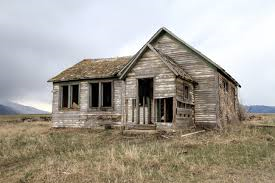 As I make progress through the revision stage of my novel, Uncle Called Him Spider, I visualize odd and peculiar moments in my life. Here I am thinking about point of view, analyzing the spaces between first person narrative and third person limited omniscience, and I start to make the comparison of that space to the thin layer of a blanket on a cold night. Then I remember the farm houses.Odd how the memory works.So a few days ago I was living through a fictional space in my mind where I envisioned someone asking me, "Why did you write Uncle Called Him Spider in third person limited omniscient instead of first person?" They would go onto explain how the two forms aren't very far apart structurally. So many great novels are written in the first person. Yes, I actually visualize conversations like this. And, yes, I'm only a breath away from insanity, but only the good writers are.
As I make progress through the revision stage of my novel, Uncle Called Him Spider, I visualize odd and peculiar moments in my life. Here I am thinking about point of view, analyzing the spaces between first person narrative and third person limited omniscience, and I start to make the comparison of that space to the thin layer of a blanket on a cold night. Then I remember the farm houses.Odd how the memory works.So a few days ago I was living through a fictional space in my mind where I envisioned someone asking me, "Why did you write Uncle Called Him Spider in third person limited omniscient instead of first person?" They would go onto explain how the two forms aren't very far apart structurally. So many great novels are written in the first person. Yes, I actually visualize conversations like this. And, yes, I'm only a breath away from insanity, but only the good writers are. It's a good question. I'm glad the fictive personality in my mind asked. Why third over first? I think it goes back to the blanket on the cold night. So what does first person perspective do? It pulls the reader in close. You are directly inside the narrator's mind and you are watching what the narrator watches. You only experience what the narrator feels. You are under the blanket.So you're going to argue third person limited does the same thing. But I'm going to disagree with you. It does put you, the reader, inside the main character's mind. Yes, you feel what she feels and you get to hear her thoughts. But there is one thing first person doesn't offer: Freedom.With just a thin layer of distance, third person limited omniscient gives the reader a power lost to the first person POV. Because you are subconsciously noticing the "he said, she said" aspect of the writing, you are then subconsciously implementing the "he said, she said" mentality. Meaning? You cast judgment more readily. You are less likely to identify with the main character and more likely to criticize her.
It's a good question. I'm glad the fictive personality in my mind asked. Why third over first? I think it goes back to the blanket on the cold night. So what does first person perspective do? It pulls the reader in close. You are directly inside the narrator's mind and you are watching what the narrator watches. You only experience what the narrator feels. You are under the blanket.So you're going to argue third person limited does the same thing. But I'm going to disagree with you. It does put you, the reader, inside the main character's mind. Yes, you feel what she feels and you get to hear her thoughts. But there is one thing first person doesn't offer: Freedom.With just a thin layer of distance, third person limited omniscient gives the reader a power lost to the first person POV. Because you are subconsciously noticing the "he said, she said" aspect of the writing, you are then subconsciously implementing the "he said, she said" mentality. Meaning? You cast judgment more readily. You are less likely to identify with the main character and more likely to criticize her.
"The omniscient narrator is a bizarre technique, when you think about it, and no one uses it much anymore. But for the novels I want to write, it's the only approach that makes sense to me." -- by Min Jin Lee
Why? It's space. Being on the outside of the blanket you still feel the cold night, while the main character is cozy under the blanket. There's enough distance to analyze and criticize situations as the main character moves through the storyline. In essence, it empowers the reader to make their own conclusions without the main character trying to convince them otherwise.I'm going to take this a little deeper--just for food for thought. I think it may be an issue of control. If an author wants you to think a certain way about a character she will do anything and everything to persuade you, like using first person narration. Now, don't get upset at me for making this claim. If you go read the three free short stories on my website, you'll find three first person short stories. I write first person. But as I think about the novel I'm writing I can't help but wonder how much of it has to do with authorial control over the reader. Maybe I'm in a space of letting go, ready to give readers their freedom so I can have my own. Or...maybe I think way too much about this shit. :)
Support a Native owned Etsy shop, Allies United, where I offer unique merch for allies of social justice movements, like MMIW, Native Lives Matter and Black Lives Matter. Take a look inside my Etsy shop here: etsy.com/shop/AlliesUnited.
(The images used in this post were borrowed from Wikimedia and Wikipedia)
(Images were borrowed from pexels.com and terrain.org)
Arachnid Vs Reptilian: The Thirst for Brutality in Controversial Topics
The fangs of a snake might seem to overpower the fangs of a spider, and on the surface it can appear as though the match is uneven. But we can't forget the impulsiveness of the snake and the patience of the spider. And we must remember a black widow sits nicely on the tongue of a viper. Its patience is beyond the fast acting poison in its bite.https://youtu.be/Bt1DDVl5IJAWe like to think of ourselves as civilized. We'd never want to watch two creatures battling it out to the death. And it would true. We don't want to see it. So why do we? Why do we turn on the news and watch as people oppress other people, playing out the dramas of the worst parts of the human condition?This post came about by two interactions. One was with my friend Brandon. When we were walking the track at Northeastern State University here in Tahlequah, Oklahoma, he asked me about my novel. And oh did I tell him. That's one question you have to be careful of. Ask me about my writing and I'm going to talk incisively for about fifteen minutes straight. I'm sure he regretted the question after he asked. The other? It was from an exchange with a fellow blogger here on my website. They left a comment on my post about handling controversial topics in literature, Biting the Hand that Feeds Us: Handling Controversial Topics in Fiction, Art, and Life. Again I started rambling with this individual. I'm a relatively quiet person until you ask me to talk about literature, and then I'm annoyingly vocal.So why is it? Why do we love controversial topics on the news, in books, and at the movies? On the surface we might appear to be diabolical and love to feed off negative energy, and to an extent that might be true for some of us, but ultimately there's more to it.
"There are spiders whose bite can cause the place bitten to rot and to die, sometimes more than a year after it was bitten. As to why spiders do this, the answer is simple. It's because spiders think this is funny, and they don't want you ever to forget them.” -- Neil Gaiman
My novel, Uncle Called Him Spider, features the battle of arachnid (Dean) versus reptilian (Snow). My protagonist (Dean) is arachnid and my antagonist (Snow) is reptilian. Both are unlikable. And to a certain extent you empathize with both as the novel progresses. Since Dean is the protagonist you have a little more reason to root for him but by his ruthless actions you don't really want to. Since you know less about Snow you want to root for her but she is more ruthless than Dean. Seemingly if you knew more about her you might find yourself at a loss of who to champion.So what do you do? The same thing you do when watching a spider and snake fight. As you watch, you can't help but have empathy for both and not want either to die in the battle. But do you turn away? No, you don't. You keep watching. Why? Is it because you want to know the outcome? That would be part of it. But I argue there's a little more.
“To the unspoiled, even a snikebite is a loving kiss. But to the spoiled even a loving kiss is a snake bite.” -- Mikhail Naimy
There's a missing component to modern literary novels. They're soft. Literary novelist are supposed to hold a mirror to society and force us to confront issues like racism. You find more value in a Hollywood movie like Get Out, which confronts liberal racism through the Horror genre. Are contemporary literary novelists pandering? Do they seek to conform to ideological versions of society so as to not insult a privileged and weak-minded audience? Or are literary writers cowards who underestimate the pallet of the modern literary reader?I know, you're wondering why we watch the spider and snake battle to the death. It's because we can see ourselves reflected in the battle. We're looking at a mirror, and by watching the brutality on the news like the brutality of two predators fighting to the death, we have the opportunity to learn something about ourselves. Its introspection we thirst for. We need to see the worst parts of ourselves reflected in others. There is no other way to purge our own bloodlust. And we literary writers should be brave enough to satisfy our readers with the opportunities to self-reflect.
#1 Writing Rule: Be Teachable
We writers area equal parts ego and vulnerable. The cliché is to develop a "tough skin" over the years and be able to take criticism. But we all think we're geniuses, and we are. Brilliant beasts who are magical at hiding our softest parts behind a shield of "I already know" and "You just don't understand the work."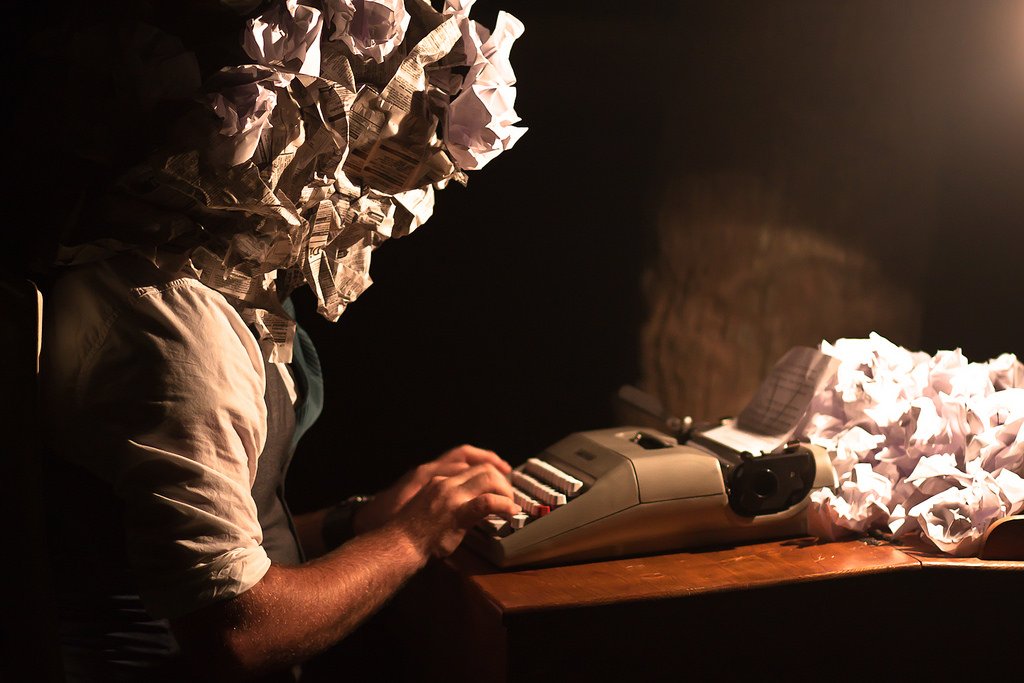 "Humble yourself, Oscar," often goes through my mind. One thing I've learned over the years of writing and revision and rejection and submission and rejection again and writing again and revision again is this: Be teachable.
"Humble yourself, Oscar," often goes through my mind. One thing I've learned over the years of writing and revision and rejection and submission and rejection again and writing again and revision again is this: Be teachable.
"The ultimate aim of the ego is not to see something, but to be something," By Muhammad Iqbal - Pakistani Poet
I say that and I also offer writers advice which will sound like a schism (and it is), but we need to retain our ego. We need to always remember we are undiscovered geniuses. We are the next brilliant thing to hit the writing world. We have the ability to transform this planet into something more habitable. And ultimately that's why we sit here everyday and write. To end oppression. To open up people's minds. To give readers a new way to look at life. Our genius is geared toward benevolence. Or at least that's what we tell ourselves, and I suggest we continue to do so.But at the same time we must be teachable. We must be able to take advice from other writers. It's the difference between wrestling against your ego and mastering it. When you are in control, you understand talent and skill must be executed with discipline.And the only way for a writer to obtain discipline is by listening to others.
Support a Native owned Etsy shop, Allies United, where I offer unique merch for allies of social justice movements, like MMIW, Native Lives Matter and Black Lives Matter. Take a look inside my Etsy shop here: etsy.com/shop/AlliesUnited.
(The above image was borrowed from Flickr)
Proximity's Unfortunate Consequence for Peripherals to the Writer's Gaze
There you are enjoying the advantages of not being accountable and then a writer moves in next door. At first you think, "Oh, this will be interesting...to have an artist type in the community," and then you realize writers write. More importantly, writers stand up for the weak, abused, and disadvantaged.Suddenly, you start to hear how divisive your words are, and you pause. You start a sentence and pause. Why? Because the writer just overheard you. It's true. Friends of writers understand this aspect intimately, and have long accepted "Whatever they say will be held against them." But typically there are no deal breakers in their personality. By virtue of being around writers all the time they've come to exist in the world in a genuine and compassionate way. They know writers are intelligent and understand context and begin to trust us to not recount a situation outside of the space it was experienced.I write from personal experience. I write fiction. Not memoir or non-fiction. But what I've found is that to make fiction unique and your own, writing from personal experience is the best way to capture powerful and memorable moments.
It's true. Friends of writers understand this aspect intimately, and have long accepted "Whatever they say will be held against them." But typically there are no deal breakers in their personality. By virtue of being around writers all the time they've come to exist in the world in a genuine and compassionate way. They know writers are intelligent and understand context and begin to trust us to not recount a situation outside of the space it was experienced.I write from personal experience. I write fiction. Not memoir or non-fiction. But what I've found is that to make fiction unique and your own, writing from personal experience is the best way to capture powerful and memorable moments.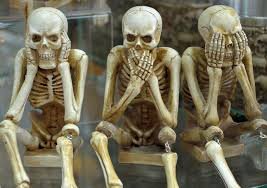 My first novel, which is in the revision phase right now, is about 90% true. In fact, it's so true all I had to do was change names and alter a few personalities. Scenes are arranged to maintain a story arch and to create dramatic action, but every scene is based on truth, based on a real experience. Sometimes you live through a series of events and, as a writer, you can't believe your unfortunate and fortunate luck. It is so terrible and magnificent, simultaneously, that you say to yourself, "This is playing out like a novel." Then a year after you've left the situation, you have distance enough to write about it. That's what happened to me. It was a hard situation to live through, but worth every word on the page.So if you find yourself in proximity to a writer, don't be surprised if you end up fictionalized among the pages. And if you don't want to be a villain in fiction, then don't be one in real life.
My first novel, which is in the revision phase right now, is about 90% true. In fact, it's so true all I had to do was change names and alter a few personalities. Scenes are arranged to maintain a story arch and to create dramatic action, but every scene is based on truth, based on a real experience. Sometimes you live through a series of events and, as a writer, you can't believe your unfortunate and fortunate luck. It is so terrible and magnificent, simultaneously, that you say to yourself, "This is playing out like a novel." Then a year after you've left the situation, you have distance enough to write about it. That's what happened to me. It was a hard situation to live through, but worth every word on the page.So if you find yourself in proximity to a writer, don't be surprised if you end up fictionalized among the pages. And if you don't want to be a villain in fiction, then don't be one in real life.
Support a Native owned Etsy shop, Allies United, where I offer unique merch for allies of social justice movements, like MMIW, Native Lives Matter and Black Lives Matter. Take a look inside my Etsy shop here: etsy.com/shop/AlliesUnited.
(Works Cited: Images were borrowed from PxHere and Pixabay)
Drama Triangle: Enhancing Victimhood with Vengeance and Sacrifice
I don't denounce structuralism. Every time I watch a Disney or Pixar movie with my daughters and tears start welling up in my eyes by simple structural tactics, like music and camera angles, I'm reminded there is a reason it works. But I'm a literary writer and we are defiant bastards and we like to take structuralism and bend it our will. So we can look in the mirror and say to ourselves, "The industry will not make me a slave."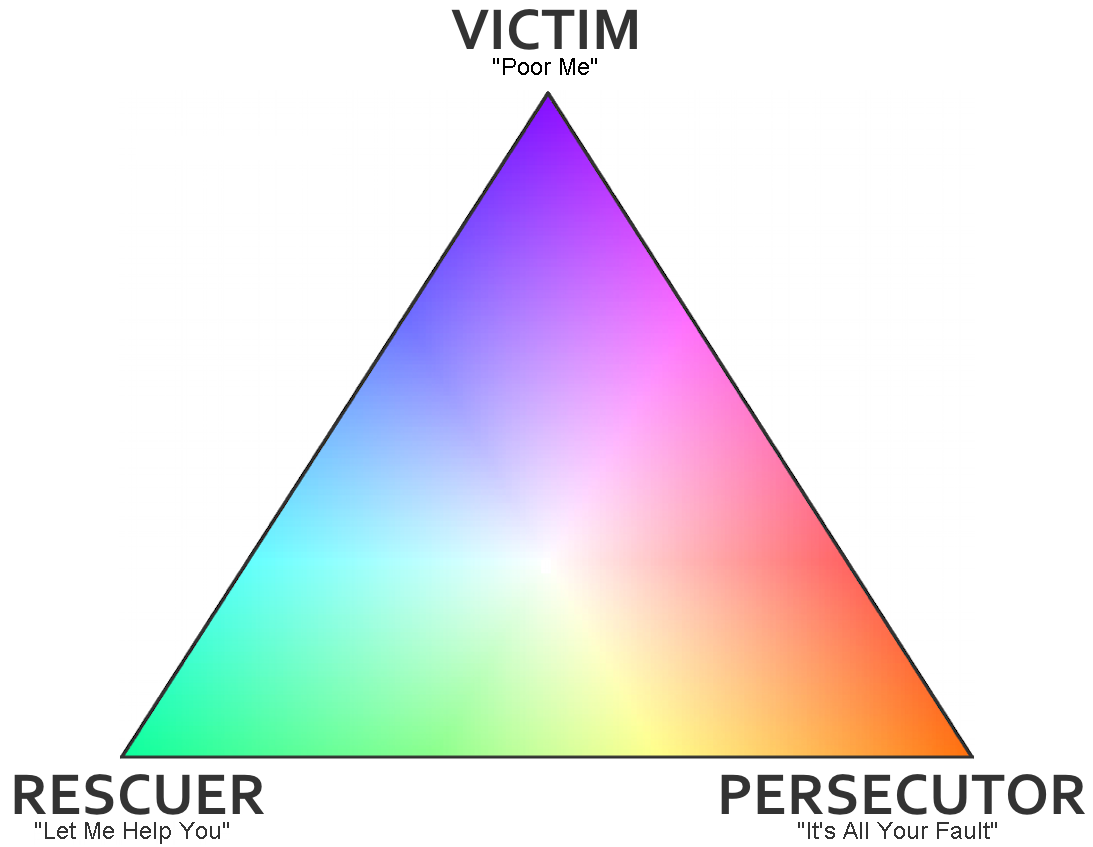 The above diagram is one of the tools I use to write fiction. I learned this from an adjunct professor at the Institute of American Indian Arts, where I obtained my BFA in Creative Writing. It has helped tremendously. I use it over and over and weigh each character against it.So to create a dynamic character in your story, you have to apply all three to your main characters, including the antagonist. This will have your character looking three dimensional, like a real human being. Easy enough.But I'm a nerd and a writerly nerd at that so I think about writing often and techniques and how they're applicable to what I'm working on. Right now, I'm revising my first novel so I spend a lot of time thinking about the above diagram.Mostly, of recent, I've been thinking of the victim dimension, and it, like the other two, can appear to be straight forward. Then I start to ask: What kind of victim? How many victim types can there be? Then I start to make an interesting list. There is the wallow in self pity victim. There is the weaponize my victimhood victim. There is the vengeful victim. And then there is the savior victim.What I've come to find is a character is more dynamic and interesting and resonates when the character can exhibit as many traits of the victim as possible. Why? For the same reason you want your main character to have all three dimensions in the diagram above, because it makes them appear more complex, more real, more human.What is more interesting to me is that when you mix victim with the rescuer you get the savior victim (those who have been violated and have returned to rescue you from your own brutality), and when you mix victim with the persecutor you get the vengeful victim (those who have been violated and have returned to make you pay). The main character in my novel, Dean, plays victim/rescuer to certain individuals in the novel, but toward the antagonist he plays victim/persecutor.But what makes me most excited about my novel is when Dean exacts vengeance on the antagonist he is doing it in the name of all the victims the antagonist has metaphorically killed in the novel, so subsequently he blends rescuer and persecutor. More or less, he throws himself on a grenade.What are your thoughts? How might you blend the three different roles listed above? Have you applied the drama triangle to your writing? What was the outcome?(Works Cited: The above image was borrowed from Wikimedia commons.)
The above diagram is one of the tools I use to write fiction. I learned this from an adjunct professor at the Institute of American Indian Arts, where I obtained my BFA in Creative Writing. It has helped tremendously. I use it over and over and weigh each character against it.So to create a dynamic character in your story, you have to apply all three to your main characters, including the antagonist. This will have your character looking three dimensional, like a real human being. Easy enough.But I'm a nerd and a writerly nerd at that so I think about writing often and techniques and how they're applicable to what I'm working on. Right now, I'm revising my first novel so I spend a lot of time thinking about the above diagram.Mostly, of recent, I've been thinking of the victim dimension, and it, like the other two, can appear to be straight forward. Then I start to ask: What kind of victim? How many victim types can there be? Then I start to make an interesting list. There is the wallow in self pity victim. There is the weaponize my victimhood victim. There is the vengeful victim. And then there is the savior victim.What I've come to find is a character is more dynamic and interesting and resonates when the character can exhibit as many traits of the victim as possible. Why? For the same reason you want your main character to have all three dimensions in the diagram above, because it makes them appear more complex, more real, more human.What is more interesting to me is that when you mix victim with the rescuer you get the savior victim (those who have been violated and have returned to rescue you from your own brutality), and when you mix victim with the persecutor you get the vengeful victim (those who have been violated and have returned to make you pay). The main character in my novel, Dean, plays victim/rescuer to certain individuals in the novel, but toward the antagonist he plays victim/persecutor.But what makes me most excited about my novel is when Dean exacts vengeance on the antagonist he is doing it in the name of all the victims the antagonist has metaphorically killed in the novel, so subsequently he blends rescuer and persecutor. More or less, he throws himself on a grenade.What are your thoughts? How might you blend the three different roles listed above? Have you applied the drama triangle to your writing? What was the outcome?(Works Cited: The above image was borrowed from Wikimedia commons.)
Impetus for Creative Spawn
Like angels and devils breading hordes of bastard monstrosities, the impetus for the type of stories I like to write comes out of the comingling of two polar opposite ideologies. One is quite happy frolicking with idealism and innocence, while the other takes great pleasure in torturing countless victims. Together they make for unpleasant friends. The type to cater to your highest morals and simultaneously use those morals to bash you into the dirt.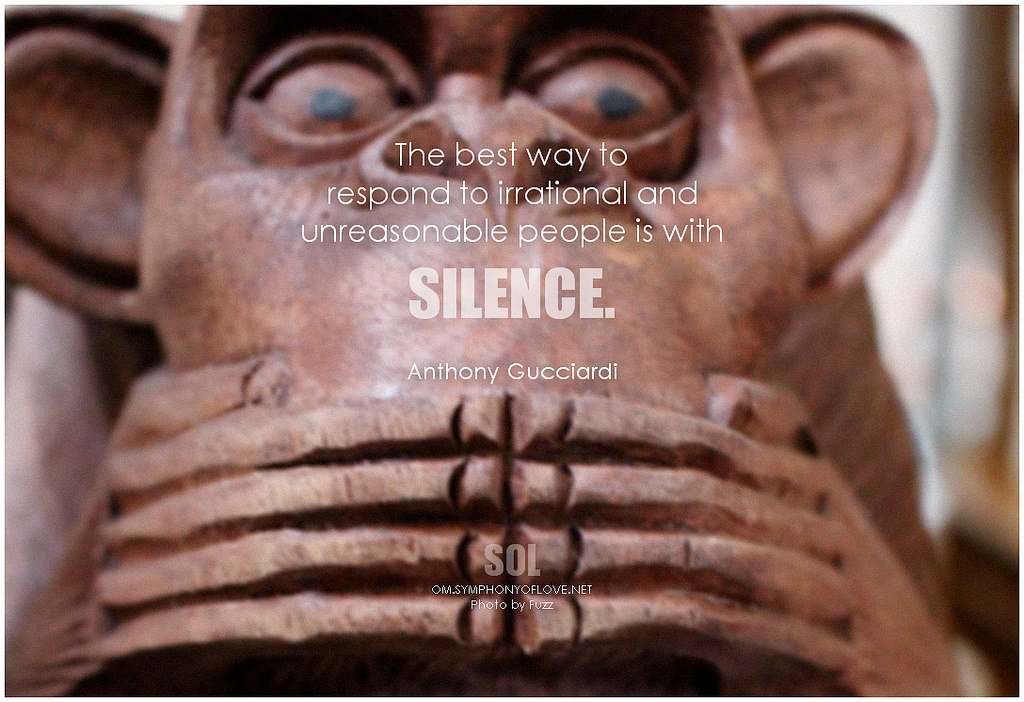 More or less, I can't write a story (or complete a story I should say) unless I'm telling on someone. I've thought about this extensively. Largely because I was stuck for a long time, years even, on getting a collection of short stories to completion. Now I'm writing a novel and burning through the second revision phase. I think a lot about writerly things, like why I write, what drives me, why did I get stuck, and how did I get unstuck? When you're deep in the muck that is stagnation you will contemplate ideas and processes you never would in other circumstances.One of the conclusions I realized recently was that I could not and still can not complete, finish, finalize, bring to fruition, totalize a story unless I am telling on someone. I always write from real life experiences. I fictionalize small things here and there to create a strong story arch, but more or less everything I've written has been about something that has truly happened to me, or to someone around me.In the previously mentioned short story collection, Reflections on the Water, I had a number of stories that were fantastic conceptually. They would have made for great stories, and maybe they will one day when I go back to them. But what I discovered was that the stories didn't keep me interested because I wasn't trying to get someone in trouble. Meaning, the characters weren't divulging something terrible in each other.I tend to like the big issues and the most disgusting behavior, like racism, sexism, homophobia, and all the oppressive qualities that they tend to come with. Typcially, there also has to be systemic issues that reflect the micro behavior, so if a character says something racist against Native people (or dark skinned Native people) we get that people live isolated lives and keep their circles very small because they aren't emotionally strong enough to expand their circle. They're emotionally like a child and need any and every form of protection to make them feel all snuggly safe.What makes the issue more interesting, or interesting enough for me to complete a short story or add into a novel, is if the racism is supported by an entire system. Not necessarily an entire community, but it could be that. I like things that show systemic issues on a smaller scale than community or national. It makes the issue more tangible and readers, including myself, can actually witness the details of such gross behavior. So if there is an organization that is supporting oppression of Native voices (or dark skinned Native voices), then it becomes more tangible, because readers will immediately reflect on their own place of work and determine if they run into the same issue. They'll either recognize it and see how the issue is real and needs to be changed. Or they will not recognize it and say to themselves "What's wrong with the people in this book/community?" Either type of judgment works for me. I'm looking for a reaction that will drive people to action.I've started great stories that made it through several drafts and one in particular that made it all the way to what I thought was a final draft, but they turned out to lose steam. Why? Because of the absence of micro and macro societal abuse. If one or the other is singularly present in the story it will fail. If it has both? Micro and macro? The statement along with the condoning voices in the room. That's what makes for a good story. A story readers will want to read over and over again.
More or less, I can't write a story (or complete a story I should say) unless I'm telling on someone. I've thought about this extensively. Largely because I was stuck for a long time, years even, on getting a collection of short stories to completion. Now I'm writing a novel and burning through the second revision phase. I think a lot about writerly things, like why I write, what drives me, why did I get stuck, and how did I get unstuck? When you're deep in the muck that is stagnation you will contemplate ideas and processes you never would in other circumstances.One of the conclusions I realized recently was that I could not and still can not complete, finish, finalize, bring to fruition, totalize a story unless I am telling on someone. I always write from real life experiences. I fictionalize small things here and there to create a strong story arch, but more or less everything I've written has been about something that has truly happened to me, or to someone around me.In the previously mentioned short story collection, Reflections on the Water, I had a number of stories that were fantastic conceptually. They would have made for great stories, and maybe they will one day when I go back to them. But what I discovered was that the stories didn't keep me interested because I wasn't trying to get someone in trouble. Meaning, the characters weren't divulging something terrible in each other.I tend to like the big issues and the most disgusting behavior, like racism, sexism, homophobia, and all the oppressive qualities that they tend to come with. Typcially, there also has to be systemic issues that reflect the micro behavior, so if a character says something racist against Native people (or dark skinned Native people) we get that people live isolated lives and keep their circles very small because they aren't emotionally strong enough to expand their circle. They're emotionally like a child and need any and every form of protection to make them feel all snuggly safe.What makes the issue more interesting, or interesting enough for me to complete a short story or add into a novel, is if the racism is supported by an entire system. Not necessarily an entire community, but it could be that. I like things that show systemic issues on a smaller scale than community or national. It makes the issue more tangible and readers, including myself, can actually witness the details of such gross behavior. So if there is an organization that is supporting oppression of Native voices (or dark skinned Native voices), then it becomes more tangible, because readers will immediately reflect on their own place of work and determine if they run into the same issue. They'll either recognize it and see how the issue is real and needs to be changed. Or they will not recognize it and say to themselves "What's wrong with the people in this book/community?" Either type of judgment works for me. I'm looking for a reaction that will drive people to action.I've started great stories that made it through several drafts and one in particular that made it all the way to what I thought was a final draft, but they turned out to lose steam. Why? Because of the absence of micro and macro societal abuse. If one or the other is singularly present in the story it will fail. If it has both? Micro and macro? The statement along with the condoning voices in the room. That's what makes for a good story. A story readers will want to read over and over again.
Support a Native owned Etsy shop, Allies United, where I offer unique merch for allies of social justice movements, like MMIW, Native Lives Matter and Black Lives Matter. Take a look inside my Etsy shop here: etsy.com/shop/AlliesUnited.
(Works Cited: The image above was borrowed from flicr.)
Mojo in the Groove: The Ebb and Flow of Creative Writing
The most dangerous thing you're going to do is drive. Because of the frequency in which we drive and the comfort we get from believing we've mastered techniques to maintain proper focus, we get into that "conscious incompetence" space where we increase our likelihood of being in an accident. Similarly, I seem to find myself doing the same with my writing, driving on automatic. I'm cruising along and I'm not paying attention to my surroundings.
![AAGG0377[1]](http://static1.squarespace.com/static/643874327cc59128758e81fe/643f1653aaff1a0b48a209bb/643f1654aaff1a0b48a20a3d/1681856084227/aagg03771.jpeg?format=original)
The most frustrating aspect of writing for me right now is maintaining consistent focus. Yeah I get up and turn on the computer and I stare at the screen and I move one word here and one word there, but what am I really doing? I'm on automatic.
Aaaaaaaaaaaaaaaaaaaaaaaaahhhhhhhhhhhhhhhhhhhhhhhhhhhhh!!!!!!!!!!!!!!!!!!
I need to wake up. I wrote the majority of my master's thesis inside a week. But I had such an intense focus and completed months of research before that week. I was prepared because I was paying attention.
I'm sitting on my first novel. 15 chapters completed. I'm editing. Revising. Doing the sweeps I do at this stage as I go through and pull out the voice and insert details that will bring the story to life, breathing spirit into the pages.
This is the most exciting part of writing. I like all the stages, but I like the final revision stage the best. It's great to see how characters come alive with metaphors and description that you didn't know you had in you. I like the struggle and the element of surprise when I finally capture something in a unique and powerful way. It's like dropping the game winning shot.
So why am I coasting? What happened to my drive? Maybe I hit a wall and I need to see myself through it. Maybe I'm waiting for my second wind. Maybe I better figure all this out before something happens and I miss the opportunity I've been working so hard to obtain.
Support a Native owned Etsy shop, Allies United, where I offer unique merch for allies of social justice movements, like MMIW, Native Lives Matter and Black Lives Matter. Take a look inside my Etsy shop here: etsy.com/shop/AlliesUnited.
